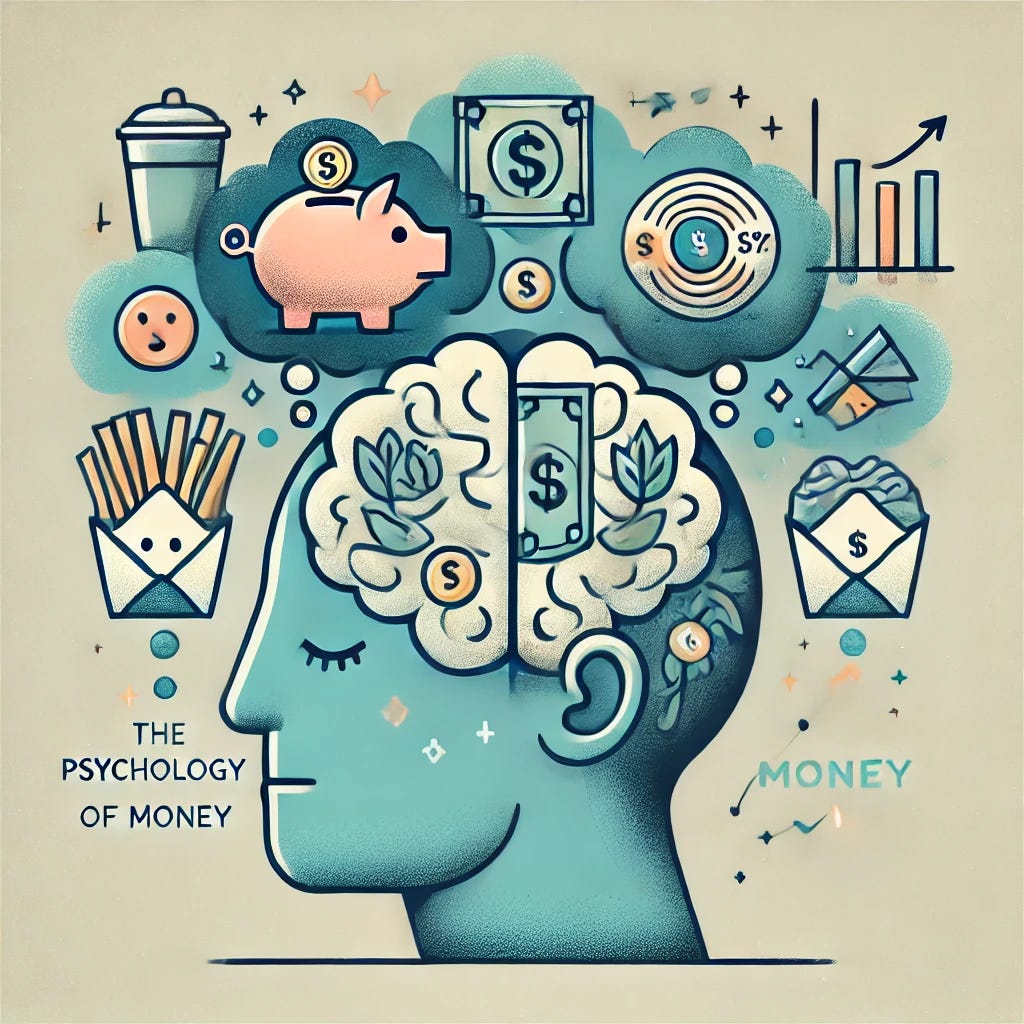Have you ever wondered why you splurge on takeout even though you’re trying to save, or why investing feels intimidating despite its long-term benefits? Money isn’t just about numbers; it’s deeply tied to our emotions, beliefs, and behaviors. By understanding the psychology of money, we can uncover why we make certain financial choices—and learn how to make better ones.
Our Brains on Money
Money decisions aren’t always rational. Psychological factors and emotional triggers often shape how we spend, save, and invest. Here are some key drivers behind our financial behaviors:
Loss Aversion
We fear losing money more than we enjoy gaining it.
For example, you might avoid investing in the stock market because the thought of a potential loss feels worse than the potential joy of a gain—even though long-term investing is a proven strategy for growth.
Mental Accounting
We mentally categorize money into different “buckets,” often irrationally.
For instance, you might splurge with a tax refund (considering it "extra money") while skipping a credit card payment. Money is money, but our minds don’t always treat it that way.
Present Bias
Immediate gratification often outweighs long-term rewards.
That’s why saving for retirement can feel less urgent than buying the latest gadget—even if the gadget will lose its value while your savings could grow exponentially.
Social Influence
Our financial decisions are heavily influenced by family, friends, and societal norms.
Keeping up with peers—whether through trendy clothes, luxury vacations, or extravagant events—can lead to overspending and debt.
Emotional Spending
Stress, boredom, or even happiness can drive us to spend impulsively.
Retail therapy may offer a temporary mood boost, but it often leads to regret when the bills come due.
Hacking Your Money Mindset
Recognizing your financial biases is the first step. The next is taking actionable steps to overcome them. Here are strategies to help you develop a healthier relationship with money:
Set Clear Goals
Define your short- and long-term financial objectives, whether it’s paying off debt, building an emergency fund, or saving for a home.
Use visualization techniques: Imagine your life after achieving these goals. This keeps you motivated to prioritize the future over fleeting desires.
Automate Your Finances
Automating savings and investment contributions removes emotional decision-making from the equation.
Tools like direct deposit into savings or apps like Acorns can ensure consistency without requiring constant effort.
Practice Mindful Spending
Before making a purchase, ask yourself: Does this align with my values and goals? Will it bring lasting satisfaction or just a momentary high?
Create a 24-hour rule for non-essential purchases—wait a day to evaluate whether you still want the item.
Reframe Your Thinking
Replace negative money beliefs with empowering ones. For instance:
Instead of “I’m bad with money,” try “I’m learning to manage my money wisely.”
Understand that every financial mistake is an opportunity for growth, not a personal failure.
Seek Support
If emotional spending or financial anxiety feels overwhelming, consider working with a financial therapist or counselor.
A financial advisor can also provide practical guidance to help you stay on track with your goals.
The Benefits of a Positive Money Mindset
Shifting your relationship with money isn’t just about numbers—it’s about improving your overall well-being. Here’s what a healthier financial mindset can do for you:
Reduce Stress
When you feel in control of your finances, worries about bills, debt, and savings diminish.
Boost Confidence
Achieving financial goals, no matter how small, reinforces your ability to manage money successfully.
Enhance Relationships
Open and honest communication about finances with loved ones can reduce tension and foster collaboration on shared goals.
Achieve Financial Freedom
Understanding and addressing your financial behaviors allows you to make smarter choices, paving the way to long-term independence.
Additional Resources for Mastering the Psychology of Money
Books:
The Psychology of Money by Morgan Housel: A must-read on how behavior shapes financial success.
Mind Over Money by Brad Klontz: Insights into overcoming money anxiety and building a healthier financial mindset.
Podcasts:
Afford Anything: Balancing financial choices with life goals.
Behavioral Grooves: Exploring how psychology impacts decision-making, including finances.
Apps:
YNAB (You Need A Budget): Focuses on intentional spending.
PocketGuard: Helps you manage spending and avoid overspending.
The Takeaway
Understanding the psychology of money is about more than numbers—it’s about recognizing the emotions and beliefs that drive our financial behaviors. By addressing biases like loss aversion, present bias, and emotional spending, we can make smarter decisions and achieve greater financial well-being.
Your money mindset matters. When you align your financial habits with your goals and values, you’re not just managing money—you’re building a life of purpose, security, and freedom.





